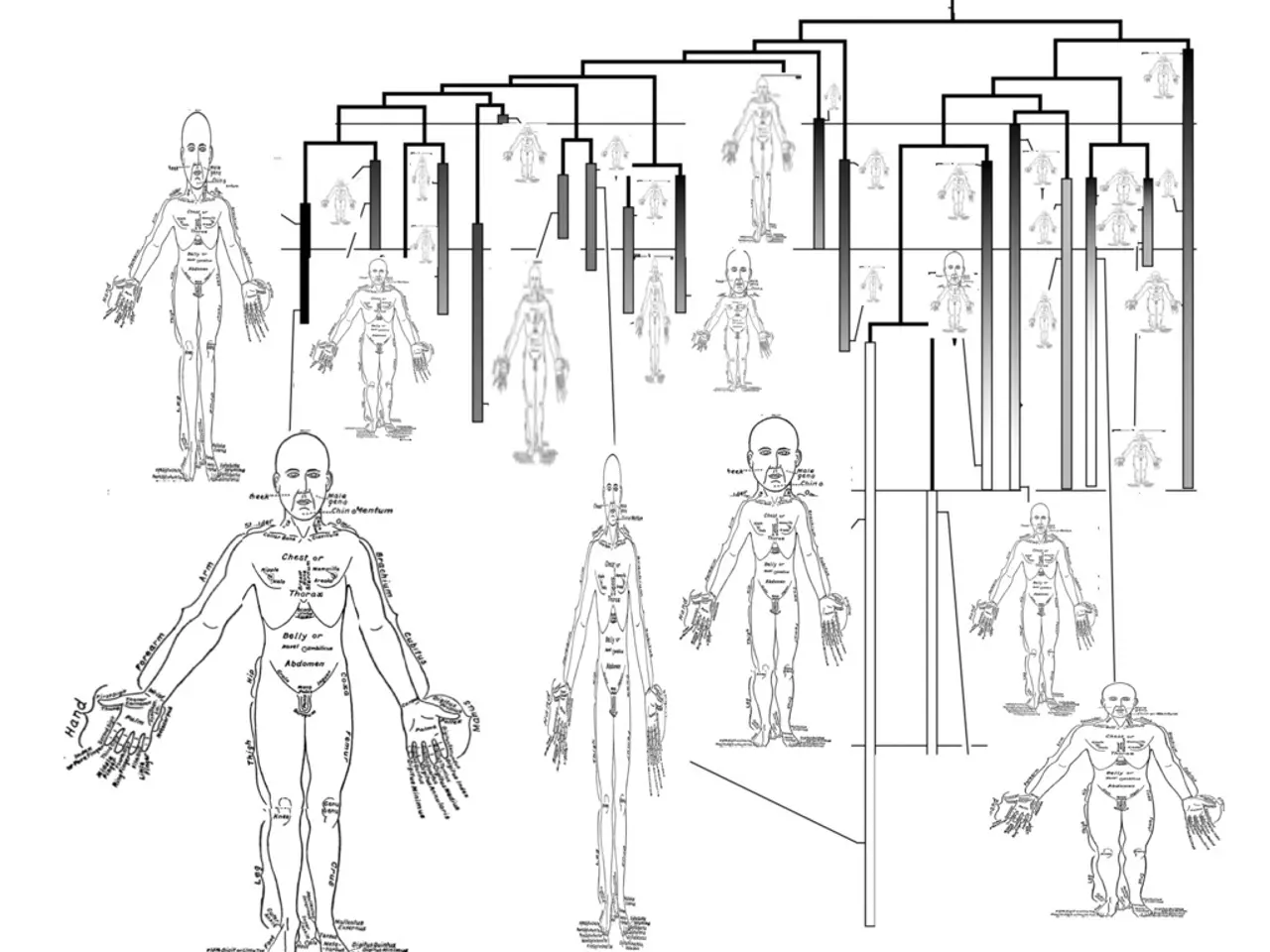Fascinating Tidbits About the Human Body You've Probably Never Heard
Unveiling the Wonders of the Human Body
In the intricate tapestry of life, the human body stands as a testament to nature's grand design. From the mighty heart that pumps life-giving blood, to the vast network of neurons in the brain that process information faster than a blink, each component plays a crucial role in our overall well-being.
The Brain: A Storehouse of Information
The human brain, often referred to as the body's second brain, is an amazing organ. It can hold more information than all the books in the Library of Congress, with estimates suggesting it has approximately 86 to 100 billion neurons. Neuroplasticity, the brain's ability to change and reorganize itself, enables it to compensate for injury and disease, and adapt to new situations or changes in its environment, supporting learning and memory.
The Muscular System: The Engine of Movement
The human body boasts more than 600 muscles, including the major ones like the biceps, quadriceps, gluteus maximus, and hamstrings. These muscles work together to facilitate movement and maintain our posture.
The Gut: The Body's Second Brain
The gut, too, deserves special mention. Often referred to as the body's second brain, it plays a significant role in overall well-being. To maintain gut health, it's essential to eat a variety of fiber-rich foods, stay hydrated, and include probiotics in the diet. A healthy gut helps in digesting food, affecting mood, and boosting the immune system.
The Skin: The Body's Shield
The skin, the body's largest organ, covers about 20 square feet. It acts as a shield that protects us from harmful germs and helps regulate body temperature. The skin renews itself every 28 days, and its thickness varies, from 0.5 mm on eyelids to 4 mm on palms.
The Heart: The Body's Pump
The heart, a tireless worker, beats about 100,000 times a day on average. In a lifetime, it beats approximately 3 billion times. The heart pumps blood throughout the body, delivering oxygen and nutrients to every cell.
To keep these wonders of the human body in optimal condition, remember to moisturize daily, wear sunscreen, and eat a balanced diet rich in vitamins and antioxidants for the skin. For the heart, a healthy lifestyle that includes regular exercise and a balanced diet is crucial.
References:
- Rakic, P. (2009). Neurogenesis in the adult human brain. Nature Reviews Neuroscience, 10(1), 53-66.
- Herculano-Houzel, S. (2009). The human brain in numbers: Cerebral cortex size and cellularity set our cognitive niche. Cortex, 45(3), 376-387.
- Azevedo, F. B., & Knierim, J. (2011). The human brain in numbers: A survey of its complexity. Trends in Cognitive Sciences, 15(7), 302-309.
- Merzenich, M. M. (2013). Neuroplasticity: The brain's ability to change. Scientific American, 309(5), 54-61.






